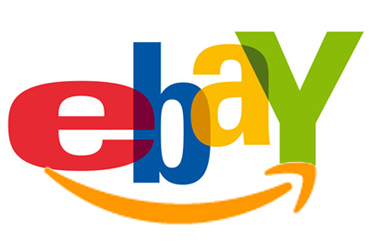As part of my 2009 Digital Media Predictions series, I said that Amazon should acquire or merge with eBay and/or Netflix (read the Netflix article here). Let me first state my obvious biases: I love Amazon and I love eBay. I purchase everything on Amazon – from groceries to toiletries to electronics to clothing. I only shop elsewhere if Amazon doesn’t sell the product. As for eBay, I spent nearly five years working there and appreciate the value of their active community and unlimited inventory.

So I feel as though I have a strong understanding of each company’s strengths and weaknesses…. And simply put, Amazon is perfectly equipped to turn eBay’s weakness (finding experience and pricing) into a strength. Meanwhile, with Amazon’s assistance, eBay is able to bolster Amazon’s reseller marketplace and offer a marketplace beside (or underneath) Amazon’s core experience.
I shop on Amazon for two reasons: 1) their pricing is unbeatable and 2) the site is simple and extremely efficient… meaning, I spend less time on Amazon.com finding what I need and I spend less money to buy those products.
Amazon is so efficient because they understand search, site layout and personalized onsite marketing. No one does it better… and eBay would be far more usable and valuable with that systematic intelligence; after all, one of eBay’s well known struggles is the finding experience. It’s a very difficult problem (cataloging user-generated products is troublesome and determining true relevancy and “best value” is equally tough) – but Amazon is the best on the web in this department.
If Amazon can improve eBay’s finding experience by (hypothetically) N%, you could argue that the marketplace improves by 2N or 3N% because buyers find products on eBay (rather than departing for other merchants), find better values and are more likely to return. Furthermore, pricing and reputation improve because a great finding experience would erode opportunities for overpriced items and malicious sellers.
Meanwhile, Amazon has long had interest in creating a vibrant auction marketplace that lays beside their core store. It’s gained traction, but never made a significant dent into eBay’s business (not to say it can’t or won’t over time). eBay could power that experience and open Amazon up to new inventory (millions and millions of products) – which would in turn open eBay’s marketplace up to millions of new buyers… listings would then generate more traffic, fetch higher prices and have higher margins because eBay wouldn’t need to spend as much buying traffic through Google and other sources.
Other synergies:
- Amazon and eBay have the two most sophisticated internet marketing teams (both paid search and natural search). Working together, they can surely discover important efficiencies… even if it just means working together to spend less per keyword.
- Amazon and eBay have two of the largest web services platforms on the web. There are surely ways to package content and services together for third parties, sellers, and so on. This itself can be a business – but it also allows third parties to build apps and sites for buying / selling on Amazon+eBay...
- … which enables the two companies to merge their affiliate programs (the two largest on the web, as well) and gain efficiencies there – as well as make it difficult for any major affiliate or third-party to work elsewhere (unmatched inventory, eyeballs, etc)
If Amazon and eBay were a single entity – would you shop anywhere else? Not unless you were looking for very specific goods (ie high fashion) or local classifieds… but who’s to say that the combined entity can’t win those verticals. You can even imagine going to Amazon or eBay to begin any and all product searches… rather than Google. And that then opens up an entirely new business opportunity.
